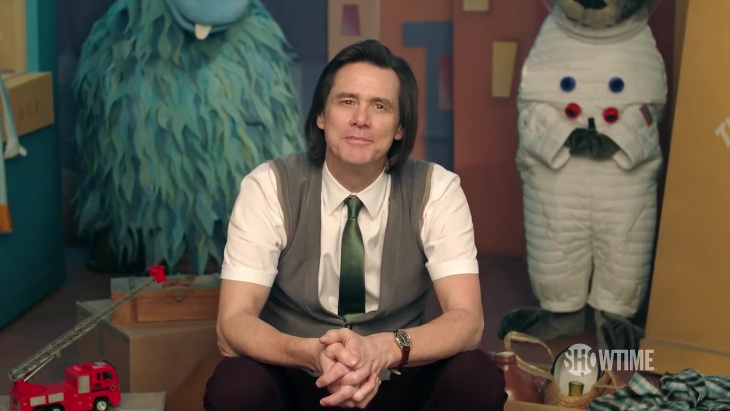
“Do we need another show about colors? The kids know the sky is blue. They need to know what to do when it’s falling.”
Kidding attempts to utilize a delicate balance of humor and drama while also touching on subject matter that will, probably through coincidence, feel rather fresh in the minds of many North American television viewers. The question is whether the show succeeds in finding that balance. Well, it gives it a shot. Sometimes, the first episode, Green Means Go, nails it and provides some spectacular, introspective lines that will stick in the memory. At other points, the semi-comedic disaster which is our main character’s personal life feels too dissonant to gel properly with other aspects of the show. The writing also has some inconsistencies, and while the child actors do an admirable job, the show leans on them too heavily and offers them questionable dialogue to work with. Still, while it may have its flaws, with a strong central performance by Jim Carrey that plays to his two biggest strengths, Kidding at least has the potential to find its footing and hopefully deliver a compelling story about the power of optimism and compassion.
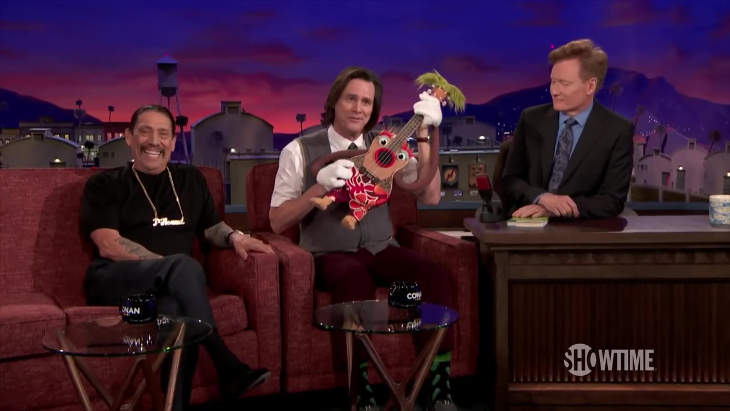
The story of Kidding focuses on Jim Carrey’s Jeff Piccirillo, the star of a children’s show named “Mr. Pickles’ Puppet Time.” Despite his optimism and influence, Mr. Pickles finds his world torn apart when one of his two sons dies in a car accident. The character and basic premise have more than a passing resemblance to another prolific series, and, on some level, it is hard not to view Kidding as being a peculiar alternate version of Mr. Roger’s Neighborhood. It’s a comparison that doesn’t inherently hurt the show’s story, but it does come off as more than a little distracting. Scenes of Mr. Pickles testifying before Congress or trying to convince his producer to allow him to do an episode about death feel too on-the-nose, particularly when the recent documentary Won’t You Be My Neighbor? serves as prominent reminder of how these ideas reflect real life occurrences. Furthermore, while I like the Mr. Pickles character, he does come off as too naive at points, and leads to interactions (particularly one involving Danny Trejo in the opening scene) that are too awkward to be funny. However, when the character works, he definitely works. As was mentioned earlier, the show plays to Carrey’s ability to play both giddy, living cartoons and more somber and introspective individuals. The scenes between him and his producer, played by the spectacular Frank Langella, make strong arguments for the power of children’s television and there are moments where the episode feels like it is approaching a modicum of profundity. Unfortunately, those do get undercut by the less than subtle missteps that rear their heads from time to time.
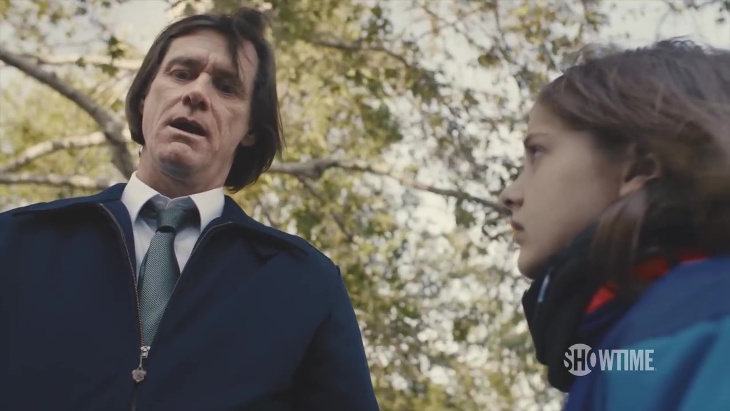
I alluded to the opening which featured Danny Trejo and Conan O’Brian as being a scene that didn’t work for me, but the ones where Jeff interacts with his family also have a relatively poor track record in this first episode. There are two lengthy conversations that he has with his estranged wife and surviving son that come across as notably awkward. Cole Allen portrays both sons, and he does an admirable job, but the exchange between him and his father lacked a sense of authenticity. The episode also suffers from an uneven editing style and it plays too coy with the relationships between its characters. There are a couple reveals about side characters in this first episode that don’t appear to have any purpose beyond shocking the audience and they just don’t work. Midway through Green Means Go, the editing actually had me wondering whether it was being told in chronological order. Ignoring a single flashback, I believe it was told in order, but the cuts and transitions made it difficult to be certain when watching it. This could have definitely benefited from a little more time on the editing table, and another review of the children’s lines.
Before I wrap up, a few Notes and Nitpicks:
- While I didn’t like the way the show had Jeff’s son, Will, act so crudely towards his father in a downright nonchalant way (cursing out your father should be a special thing that comes with pomp and circumstance!), the moment where he tells his father that he “dresses like Rosa Parks’ bus driver,” was a legitimately good one, as was Jeff’s response in which he compliments the historical reference.
- This show marks the second collaboration between Jim Carrey and Michel Gondry who had previously directed & co-wrote Eternal Sunshine of the Spotless Mind. If you haven’t seen it, check out Eternal Sunshine. It is one of my favorite films.
- I was originally planning on taking a look at this after USA’s The Purge, but Showtime was nice enough to release the first episode early on YouTube.
- Half-hour dramas are something of a rarity, and I wonder if the show’s issues with editing are related to the novelty of this combo. Given that it lacks commercials, I think this could ultimately work in the program’s favor once it finds a more solid footing.
- I don’t know if the show’s reveal of two ends of a horse costume having sex was intended as a big reveal or a joke, but it didn’t really work as either.

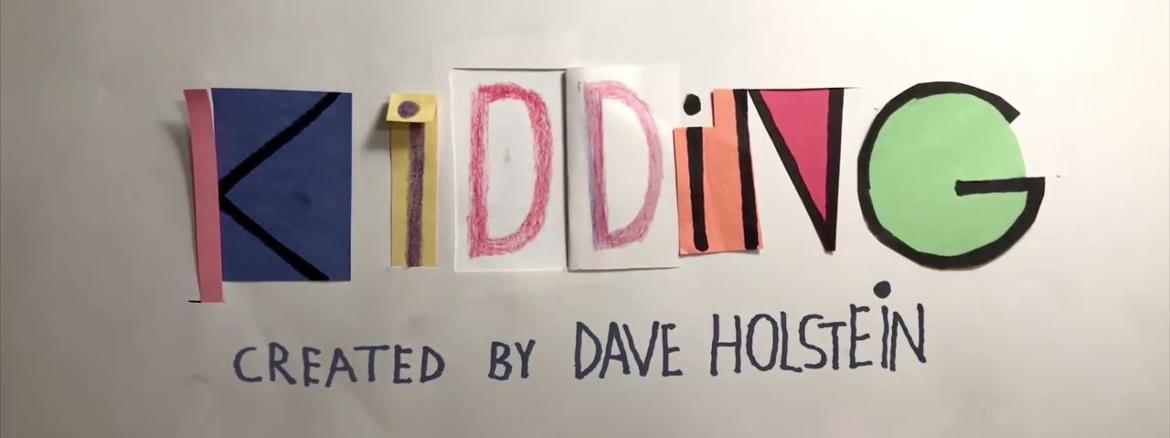
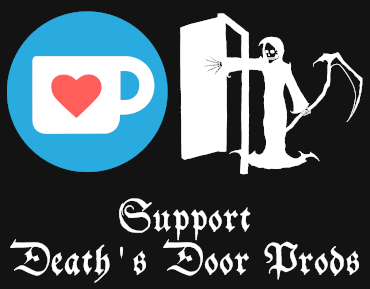

Add comment